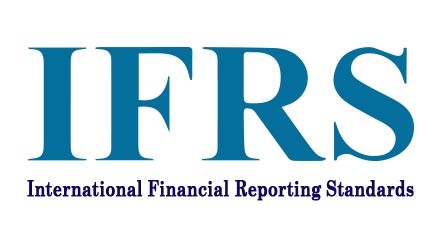Writer: Nguyen Hong Hanh – Number: 07

Source: https://www.fundamentalsofaccounting.org/wp-content/uploads/2017/11/ifrs_course.jpg
In Vietnam, Finance Statement regulations are follow Rules-based Accounting. Some countries followed this regulations such as Indonesia, Thailand, Phillipines… But the International Financial Reporting Standards (“IRFS”) follow Principles-based Accounting. Do these regulations have any conflicts in business results? This article will bring you an aspect about this question.
“IRFS” is applied from 1/1/2005 and over 100 countries have follow this regulations. Principles-based Accounting is used as a conceptual basis for accountants. A simple key of objectives are set out to ensure good reporting. The most basic benefit of this is bringing a clear guide to the accountants to specific case because of its broad guidelines and practical in a variety of circumstances. The problem with principles-based accounting is that lack of guidelines sometimes can produce unreliable and inconsistent information that makes it is difficult to compare one organization to others.
Rules-based Accounting is basically a list of detailed rules that must be followed when preparing financial statements. When there are strict rules that need to be followed, the possibility of lawsuits is diminished. Having a set of rules can increase accuracy and reduce the ambiguity that brings to management. The complexity of rules, however, can cause unnecessary complexity in the preparation of financial statements. Countries that follow this regulations will focus on how to write finance statements, rules… When the rules change, the students are worried about they have to learn all over again. Therefore, there is a worry about good students will not be attracted about the curriculum.
The finance standards are now changing rapidly and many countries are applied increasingly, which requires teachers to change the teaching method into principles, suitable with the present business results. The teaching of Principles-based Accounting will increase students’ judging about jobs, how to deal with problems in many cases, understand that there are some answers for one finance question, not only one. This will support students to find solutions by theirself, not by learning by heart.
In Vietnam, from 2001 to 2005, The Ministry of Finance has released 26 Accounting Standards, which are built on the world standards. In this trend, some companies with the foreign investment or big companies has applied IFRS such as VpBank, PVI Joint Stock Company have shown very clear and precise information. Many meetings about applying IFRS has been hold, such as “IFRS – Trend and Roadmap for adoption in Vietnam” in December 2016. From 2018-2020, 10-20 companies will be chosen to follow these regulations, and in the future, more and more companies will follow this. In Hanoi, one of the biggest training courses about IFRS for learners are hold by VCCI and Deloitte Vietnam. They often has courses for companies, bring a fresh view about IFRS and how to apply it in the jobs.
To change completely regulations in Vietnam is still under considering. Companies should encourage and make opportunities for staffs to learn and to change, It will bring a different way in manage business.
Source:
https://www.investopedia.com/ask/answers/06/rulesandpriciplesbasedaccounting.asp
http://vaa.net.vn/Tin-tuc/Tin-chi-tiet/newsid/3951/GIANG-IFRS-TRONG-DAO-TAO-KE-TOAN
